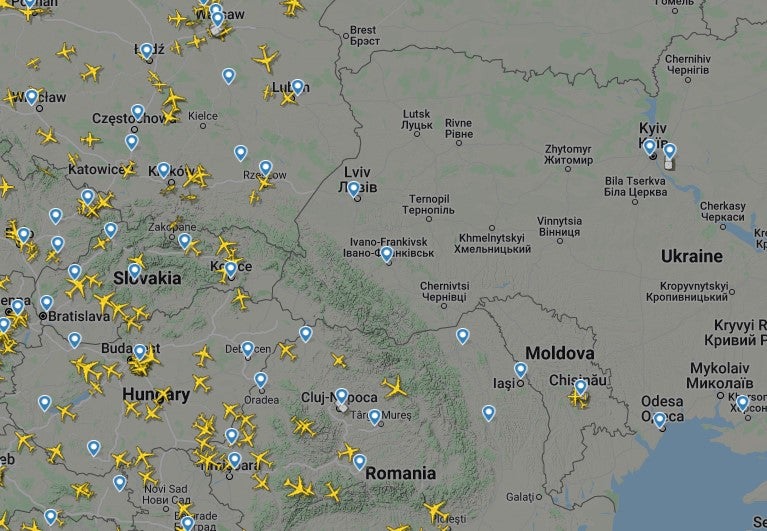Ukraine closes skies to civil aircraft after Russian invasion
In 2014, 298 people died aboard Malaysia Airlines flight MH17 when it was shot down with a Russian anti-aircraft missile fired from eastern Ukraine

Your support helps us to tell the story
From reproductive rights to climate change to Big Tech, The Independent is on the ground when the story is developing. Whether it's investigating the financials of Elon Musk's pro-Trump PAC or producing our latest documentary, 'The A Word', which shines a light on the American women fighting for reproductive rights, we know how important it is to parse out the facts from the messaging.
At such a critical moment in US history, we need reporters on the ground. Your donation allows us to keep sending journalists to speak to both sides of the story.
The Independent is trusted by Americans across the entire political spectrum. And unlike many other quality news outlets, we choose not to lock Americans out of our reporting and analysis with paywalls. We believe quality journalism should be available to everyone, paid for by those who can afford it.
Your support makes all the difference.Ukraine has closed its airspace “due to the high risk of aviation security for civil aviation”.
The nation’s State Air Traffic Services Enterprise announced the closure shortly before 1am GMT. A statement read: “The provision of air traffic services to civilian users of the airspace of Ukraine is suspended.”
Data from Flightradar24 at 7.45am GMT shows no civil aircraft in Ukrainian airspace, and very few in Belarus – where many Russian military forces are gathered.
Grant Shapps also advised airlines to avoid Ukrainian airspace “following the horrific events overnight”.
The transport secretary tweeted: “I’ve instructed UK-CAA (the Civil Aviation Authority) to ensure airlines avoid Ukraine airspace to keep passengers and crew safe.
“We continue to stand with the people of Ukraine and work with our international partners to respond to this act of aggression.”
In 2014, 298 people died aboard Malaysia Airlines flight MH17 when it was shot down with a Russian anti-aircraft missile fired from rebel-held territory in eastern Ukraine.
Ukraine International Airlines said in a statement that it has cancelled all flights “due to the closure of Ukrainian airspace for civilian airspace users”.
The Latvian airline airBaltic immediately announced that it was cancelling its flights up to and including 13 March 2022.
Hungarian airline Wizz Air was due to operate flights to Luton from Kyiv and Lviv on Thursday, but both were cancelled.
“Passengers with flights booked on arriving or departing Ukrainian flights can find more information on wizzair.com, or alternatively, via the airline’s call centre,” advised a spokesperson.
“The safety and security of our passengers and crew remains our number one priority and we hope normality will to return to Ukraine soon.”
Flights are continuing over Russian airspace. Many flights between Europe and Asia are typically routed over Russia. British Airways flights to London from Singapore and Islamabad have been flying close to Moscow on their journeys.
BA’s flight from London Heathrow to Moscow, due to depart at 8.20am, appears to be operating normally.
The evidence from previous conflicts such as the first Gulf War – which began 31 years to the day before Russia’s attack on Ukraine, in 1991 – is that many passengers cancel bookings or are reluctant to travel even if their journeys are nowhere near to the battle zone.
A former British Airways executive who did not wish to be named told The Independent: “Just as bookings were picking up following two years of Covid-led disruption, this is the last thing European airlines need.”
The price of oil, which is a key cost for airlines, spiked on news of the invasion to its highest level since 2014.

Join our commenting forum
Join thought-provoking conversations, follow other Independent readers and see their replies
Comments